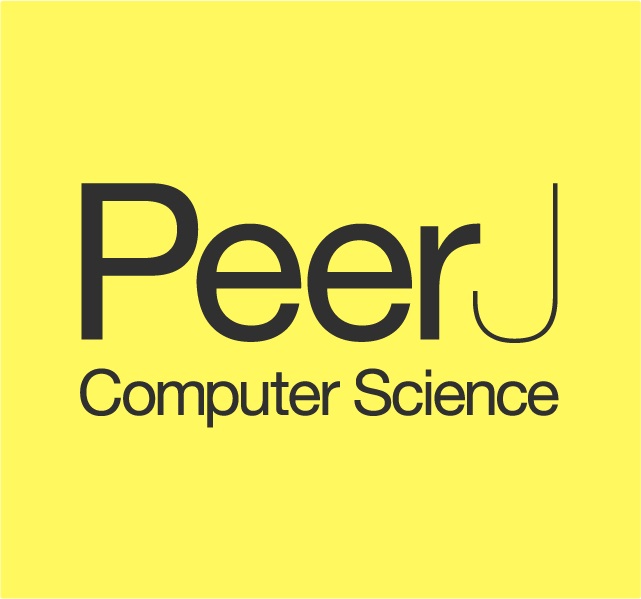 In our latest Conference Collection launch, PeerJ is excited to work alongside the Data’21, Jordan conference – and with PeerJ Computer Science Academic Editors Shadi A. Aljawarneh and Juan Alfonso Lara Torralbo – to publish a Collection on Recent Advances in Information Fusion.
In our latest Conference Collection launch, PeerJ is excited to work alongside the Data’21, Jordan conference – and with PeerJ Computer Science Academic Editors Shadi A. Aljawarneh and Juan Alfonso Lara Torralbo – to publish a Collection on Recent Advances in Information Fusion.
Overview
The term Information Fusion refers to the process of combining information from different sources with the goal of producing more complete, improved and precise information than that provided by each source separately. In the last few years, the Information Fusion paradigm has grown rapidly due to various factors such as the sustained increase in systems connectivity, and the advent and development of concepts such as the Internet of Things (IoT) and Big Data.
In current distributed environments, where it is possible to find heterogeneous (big) data sources, the use of Information Fusion techniques has been shown to be useful to address different problems in several application domains.
Information Fusion is strongly linked to current trends in Computer Science areas such as big data, sensor networks and the IoT. These are constantly evolving disciplines where new challenges related to data management and exploitation arise continuously. In order to deal with those challenges, Information Fusion also needs to continuously evolve and adapt by developing new methods and technologies that make it possible to maintain its high degree of applicability in different domains.
The aim of this conference collection is to explore the latest advances in Information Fusion regarding the new methods, architectures, technologies and applications that emerge from the community. This collection is mainly intended to contain extended versions of the best papers selected from the Data’21 conference that relate to Information Fusion, although in-scope submissions from the wider community are encouraged.
Topics
The list of topics includes (but it is not restricted to):
- Big Data Fusion
- Information Fusion in non-conventional Data: Image, Time Series, Multimedia
- Information Fusion in Incomplete or Imprecise Environments
- Information Fusion in Distributed Environments
- Information Fusion Algorithms, Methods, Architectures and Technologies
- Information Fusion in Cyber Physical Systems
- Information Fusion in the Internet of Things
- Information Fusion for Data Mining, and Data Mining for Information Fusion
- Information Fusion in (Wireless) Sensors Networks and Soft Sensors
- Bio-inspired Information Fusion
- Adaptive and self-improving Information Fusion approaches
- Information Fusion in Environments with Limited Resources
- Multi-agent Information Fusion Systems
- Holonic Information Fusion
- Information Fusion in Machine Learning systems, particularly Reinforcement Learning systems
- Management, Assessment, Measurement and Improvement of Information Quality in Information Fusion systems
- Information Fusion Applications: Medicine, Education, Transportation, Economics, Robotics, Navigation, etc.
How to Submit
Submission to the collection is open now, with a deadline of July 15th 2021.
All submitted papers will be peer reviewed using the normal standards of PeerJ Computer Science. Authors should review PeerJ’s submission instructions before submitting and we ask that, when submitting, they add a note stating “Submitted to the Information Fusion Collection” in the Confidential Note to Staff field of the submission form.
Unpublished manuscripts or extended versions of the papers that have been published in related conference proceedings are welcome. All submissions must be original and not currently under review for publication elsewhere. Conference papers may only be submitted if the paper was completely re-written or substantially extended (50%). For additional questions please contact the guest editors.
Authors should note that, if accepted for publication, they will be required to pay either an Article Processing Charge ($1,195) or for a PeerJ Lifetime Membership (a one-off payment for lifetime publishing privileges – starting at just $399).
Individual articles will be published as they are accepted, and will be collated together in a Conference Collection on the PeerJ Collections page.
Collection Editors
Dr. Shadi A. Aljawarneh
Prof. of Software Engineering at Jordan University of Science and Technology. Editor of IJCAC, IGI-Global, USA; ACM Senior Member.
Dr. Juan Alfonso Lara Torralbo
Prof. at Engineering School, UDIMA Universidad a Distancia de Madrid, Spain.
About PeerJ Computer Science
PeerJ Computer Science is a peer-reviewed and open access journal for computer science research, publishing in 42 subject areas from adaptive systems to web science. Launched in 2015, the journal provides developmental peer review from their community of Academic Editors and reviewers, coupled with industry-leading customer service and an award-winning submission system. The journal is partners with USENIX, the Advanced Computing Systems Association.
About PeerJ Collections
PeerJ Collections are sets of journal articles – published across all PeerJ journals – based around a unifying theme. Often related to specific thoughts, workshops or conferences, PeerJ Collections are a great way to ensure maximum exposure for important research topics.
If you would like to propose a collection, or simply want to discuss an idea, we’d love to here from you: communities@peerj.com

